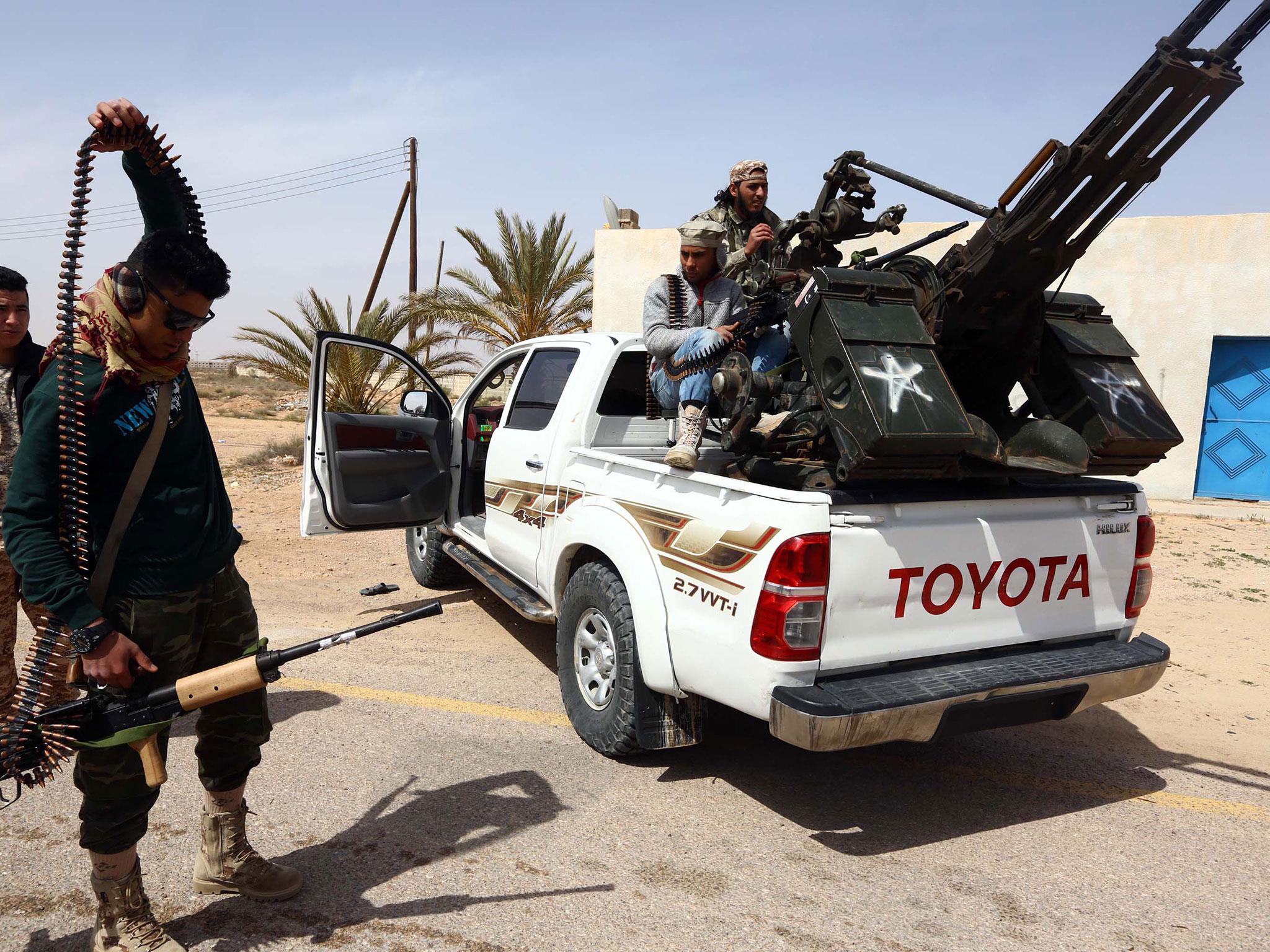Isis in Libya: West takes first steps towards military engagement to counter jihadi threat
A UN arms embargo is set to be amended to allow weapons to be sent to the Government of National Accord which is seeking to establish itself in Tripoli

Western powers are taking their first steps back towards military engagement in Libya with proposals to supply the country’s UN brokered government with weapons and train its’ forces.
An International summit in Vienna declared that a current UN arms embargo imposed on the country should be amended to allow weapons to be sent to the Government of National Accord (GNA) which is seeking to establish itself in the capital, Tripoli, after arriving recently from neighbouring Tunisia.
All five permanent members of the UN Security Council and 15 other countries attending the meeting have agreed on a communique stating that they are “ready to respond to the Libyan government's requests for training and equipping of forces” to counter Isis and other extremist groups.
The states will back an application due to be made by the GNA to the UN’s Libya sanctions committee to “procure necessary lethal arms and materiel to counter UN-designated terrorist groups and to combat Isis throughout the country.”
The embargo will remain in place, however, for groups which do not back the GNA, the international powers hold. This would include parts of a hitherto internationally-recognised administration based in Tobruk and an Islamist counterpart in Tripoli which have both, so far, rejected the UN-backed government led by Fayez al-Serraj.
John Kerry, the US Secretary of State, who co-chaired the summit with Italian Foreign Minister, Paolo Gentiloni, said “The GNA is the only entity that can unify the country. It is the only way to ensure that vital institutions fall under representative and acknowledged authority. It is the only way to generate the cohesion necessary to defeat Isis.”
Isis and other extremist groups had established themselves in Libya, taking advantage of the chaos following the overthrow of Muammar Gaddafi’s regime following a Nato air campaign of which David Cameron and the then French president Nicolas Sarkozy were the chief cheerleaders. German Foreign Minister Frank-Walter Steinmeier introduced a note of caution on what lay ahead.
“The key question is whether Libya remains a place where terrorism, criminal human smuggling and instability continue to expand, or if we are able, together with the government of national unity to recover stability,” he said as the talks went under way. “That, at present, is an open question.”
Although special forces from a number of countries, including Britain, are in Libya taking part in an anti-Isis mission, plans to deploy 6,000 European troops, led by Italy and with a projected UK contingent of around a thousand, is not being pursued for the time being.
There is a strong possibility, however, that air support will be provided for the forces of the NGA in operations after they have received training.
The training process itself, however, may be problematic. A programme under which Libyans were being trained by British forces in England two years ago was scrapped after a breakdown in discipline and some of the recruits being charged with criminal offences, including sexual assaults. The expectation is that Western troops will have to be based in the country to carry out training, with the possibility that this will leave them vulnerable to attack by jihadists.
Mattia Toaldo, of the European Council on Foreign Relations, stressed that the West should not focus on military solutions. He said: “Europeans now have what they asked for, namely a unity government ruling from the capital. They should take care not to burden it with unrealistic demands, from ending the migrant crisis to defeating Isis. Instead, the West should work to strengthen the government’s political control over the country.”
Efforts must be made, said Mr Toaldo, to alleviate the economic crisis which threatens to worsen the situation on migration and Isis, and to press Mr Serraj’s government to reconcile with the Tobruk administration.
Join our commenting forum
Join thought-provoking conversations, follow other Independent readers and see their replies
Comments
Bookmark popover
Removed from bookmarks